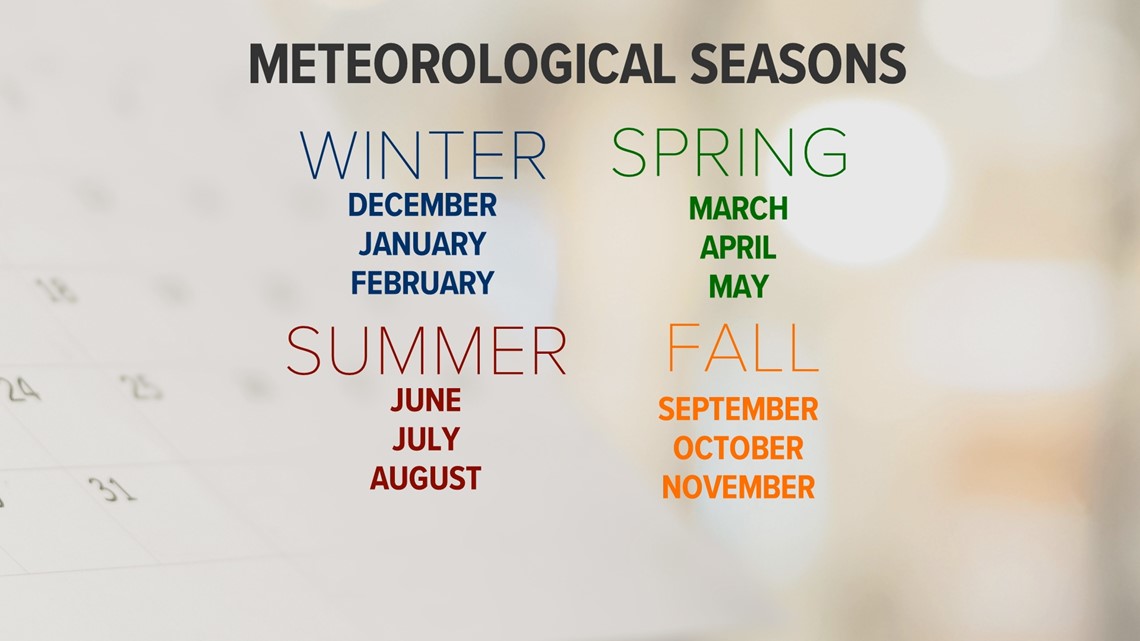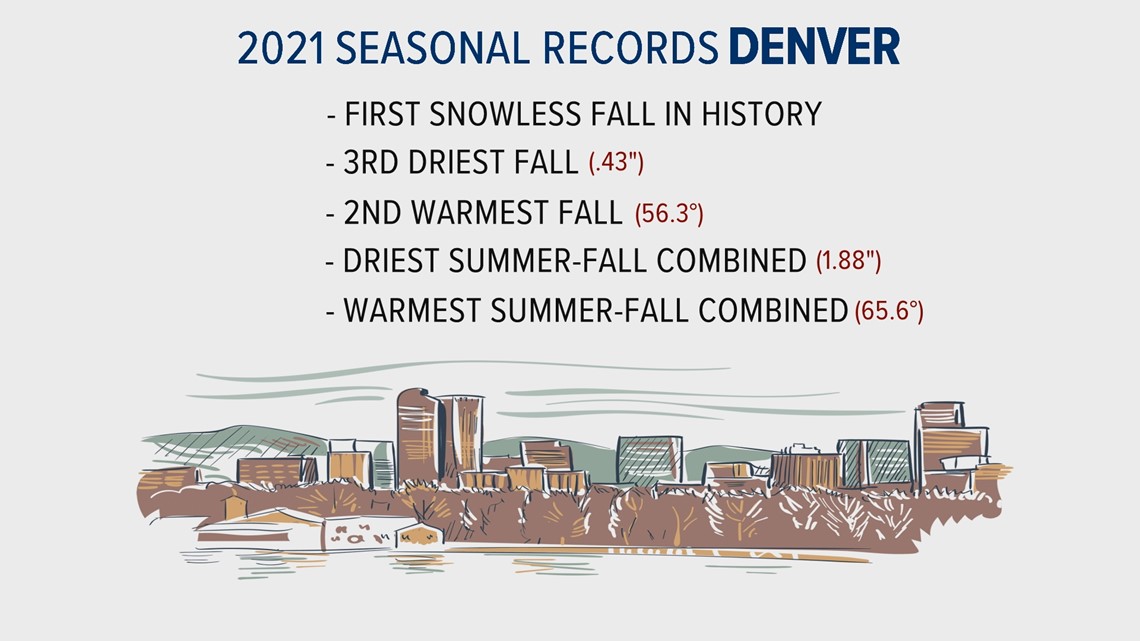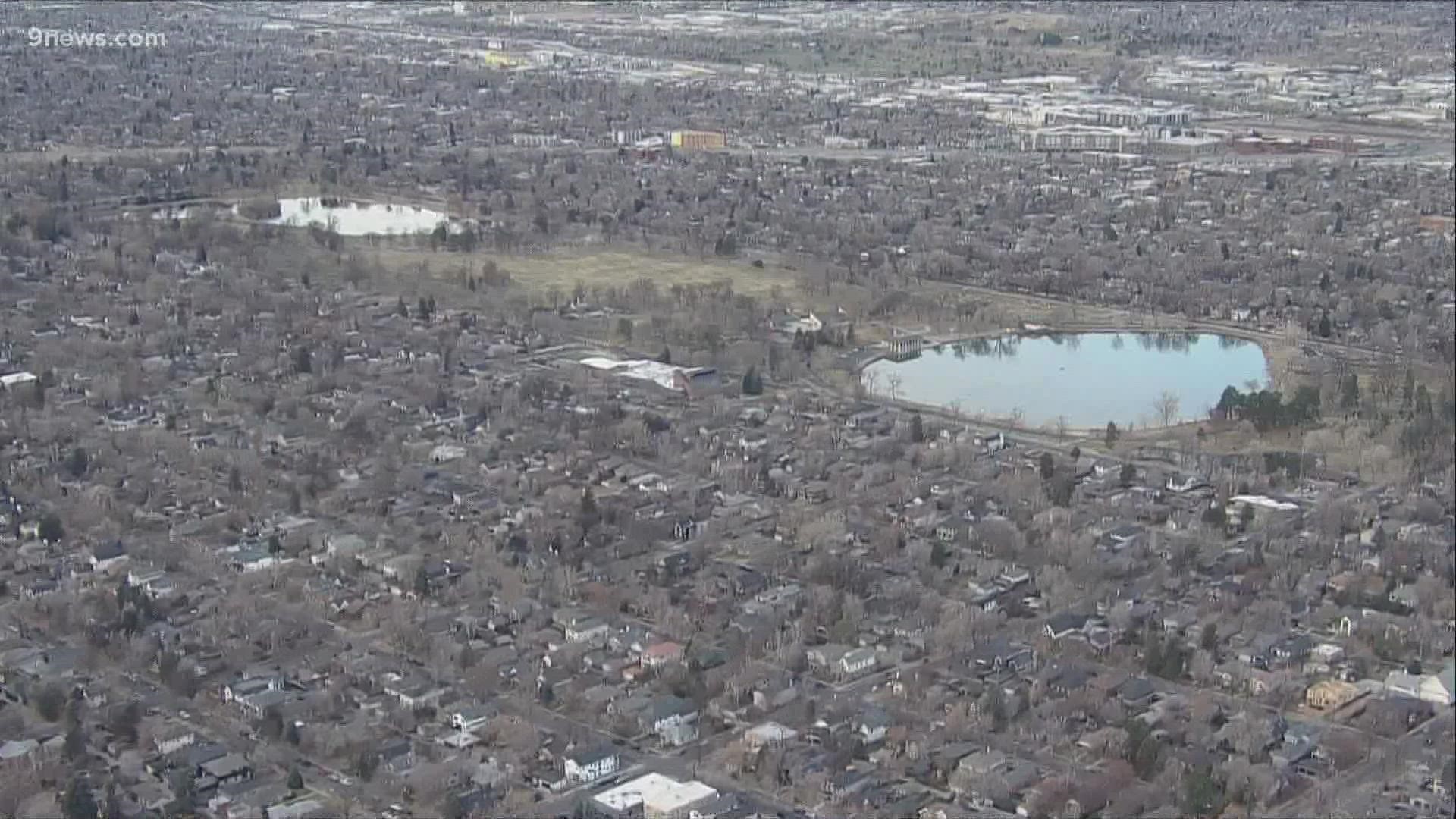DENVER — Dec. 1 is the first day of meteorological winter. For record-keeping purposes, climate data is recorded with the seasons in equal three-month segments.
Astronomical seasons, on the other hand, vary by several days each year depending on the day of the equinoxes and solstices.


That means fall is officially over, at least when it comes to the weather. And this fall will go down in the books as record dry and warm in Denver.
Here's a look at some of the records for fall 2021, and summer and fall combined.
- It was officially the first snowless fall in Denver history. There was some snow reported, but there wasn’t enough to get a measurement of at least a tenth of an inch.
- It was the third-driest fall on record with less than a half-inch of rain.
- It was the second-warmest fall, with an average temperature of 56.3 degrees.
- It was also the driest summer and fall combined from June 1 through Nov. 30, with less than 2 inches of rain in that span.
- It was also the warmest summer and fall combined, with an average temperature of 65.6 degrees.


Most places on the Front Range finished with top-five warm Novembers. Denver and Fort Collins were third-warmest in history. Boulder and Dillon finished as fourth-warmest.
The dry fall dropped the total precipitation in Denver for 2021 below average, despite a very wet spring.
March 2021 was the fourth-snowiest month in Denver history, with nearly 3 feet of snow. That remarkable weather pattern was then followed by the driest summer and fall on record.
For the Colorado Front Range, average has always been just a number that lies somewhere in between two extremes. But November was the sixth month in a row with above-average temperatures and below-average precipitation.
The outlook for December is not promising. It’s on average Denver’s driest month of the entire year. But it’s also the coldest month, which increases our chances of getting that first snow accumulation of the season.
The next time it does snow, it will set the record for the latest first snow in Denver history.
There are a few storm systems coming over the next 12 days, but they are by no means a slam dunk for Denver snow. They are being shown in long-range modeling as relatively weak and dry, so it’ll still take some luck for Denver to get enough snow next week to count as the first accumulation of the season.
SUGGESTED VIDEOS: Science & Weather

